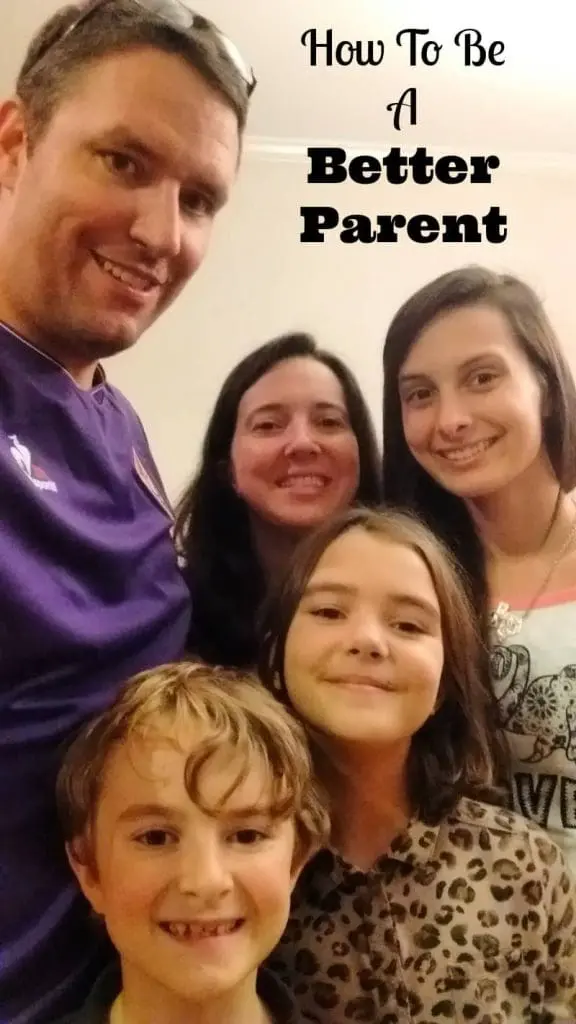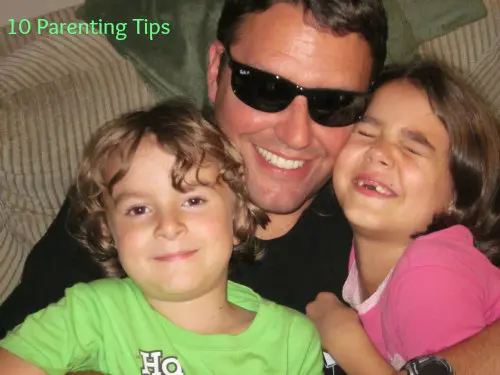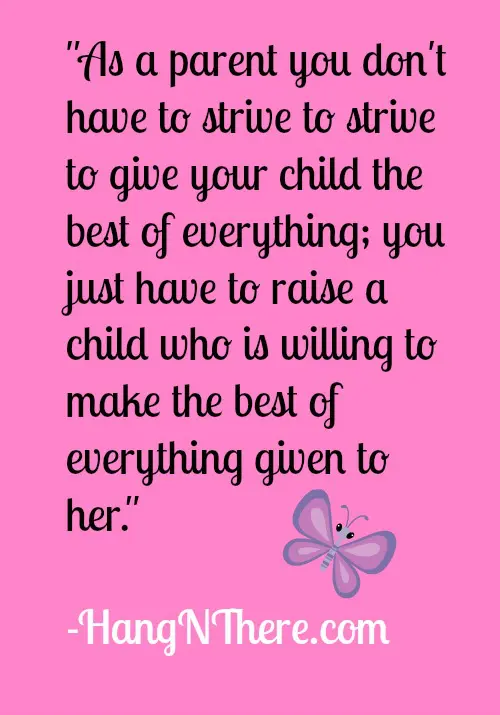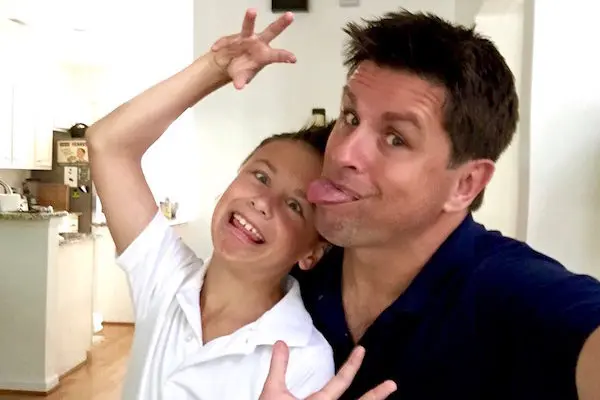This top parenting blog is sharing 10 tips for how to be a better parent. We all want to have a strong and meaningful relationship with our children. However, the reality of daily life often gets in the way, leaving us feeling disconnected from our own children. Fortunately, there are simple ways to bridge that gap and connect with your child on a deeper level. In this article, we’ll explore strategies that will help you build a stronger emotional connection with your child. Whether you’re a new parent or an experienced one, these tips are universal and applicable to all ages. So, let’s dive in and learn how to connecting with your child will make you a better parent. Plus, Rob Youngblood shares 3 bonus odd parenting tips that you just may love!
These tips serve as a quick reminder of specific steps you can take right now to improve your parent-child relationship. The goal is to empower all parents with practical strategies to support the raising of healthy, resilient, happy children.

How To Become A Better Parent Without Yelling
Being a better parent without yelling starts with fostering patience and practicing self-awareness. Take a moment to pause and breathe before reacting to challenging situations, and aim to respond rather than react. Set clear boundaries and expectations, using calm, consistent communication to guide behavior. Empathy is key—try to understand your child’s perspective and validate their feelings, even if their actions need correction. Encourage positive behavior by acknowledging effort and progress, and model the behavior you wish to see. By prioritizing connection and problem-solving over punishment, you create a safe environment for your child to thrive emotionally and behaviorally. Be a good role model. Manage your own emotions and practice pausing for a deep breath before responding in challenging situations.
Yelling isn’t better than speaking because it often escalates conflicts rather than resolving them and can create fear or resentment in children. Calm, clear communication fosters understanding and cooperation, helping children process what you’re saying without feeling overwhelmed or defensive. Speaking respectfully also models healthy emotional regulation, teaching children how to handle frustrations constructively. Building connection and guiding behavior through calm dialogue ultimately strengthens your relationship and promotes a more positive home environment.
Or as Rob Youngblood, a Single Dad, Keynote Speaker, Emmy Award Winning TV Host, Communication Coach, Actor, Anchor, and Author puts it, “Hey Polly Perfect and Thomas Taskmaster… Lighten up! Here’s how to be a better parent without yelling. Stop taking everything so seriously! Yes, there is a time and place for discipline and work but there is also a time for not really caring. Every problem and tough situation does not always mean the end of the world. Some battles are just not worth the fight and some issues are just not that important in the grand scheme of childhood. Relax just a bit and your child will relax as well. Part of being a better parent is knowing when to take it easy will teach your children balance and it will also teach them to not sweat the small stuff in life.”
10 Actionable Tips To Connect with Your Child on a Deeper Level
Parenting is one of the most rewarding yet challenging roles, requiring constant growth and adaptation. Being a better parent starts with understanding that perfection isn’t the goal—connection and effort are. Children thrive when they feel loved, heard, and supported, and as a parent, creating a nurturing environment is key. This involves setting clear boundaries, being consistent in your actions, and showing patience even during tough moments. By prioritizing open communication, empathy, and self-care, you can build stronger relationships with your children while modeling positive behaviors. Parenting is a journey of learning, both for you and your child, and small, mindful changes can have a lasting impact.
We all know the basics of being a good parent. Be kind, be understanding, be loving, be compassionate, be strong, etc. etc. etc. But there are also quite a few unique ways to be successful in parenting by thinking just a tad outside the box. Being a wee bit different does not mean you are failing as a parent. In fact, it could be the difference between raising happy, healthy youngsters or going crazy in the process! Next time you are in a situation where the tried and true is not working for you, maybe try a unique approach to solving the problem. Find what resonates with your parenting style. Here are some parenting principles to get you started in the right direction.
Be Present in the Moment
One crucial aspect of connecting with your child on a deeper level is to be present in the moment. In today’s fast-paced world, it is easy to get caught up in our own thoughts and distractions. However, when we are present and focused on our child, we show them that we value them and are interested in what they have to say. This means putting away our phones, turning off the TV, and giving our full attention to our child. When we are truly present, we are better able to listen actively to our child and engage in meaningful conversations. Speaking of which, let’s explore the next strategy for connecting with your child on a deeper level – listening actively to your child.
Exercise Active Listening And Communicate Openly
When we actively listen to our child, we show them that what they have to say is important. This helps to build their self-esteem, deepen our relationship with them, and foster a sense of trust between us. Active listening involves being fully present in the moment, making eye contact, and paying attention to what your child is saying. Show your child that their thoughts and feelings matter by listening without interrupting or judging. It also means asking open-ended questions to encourage further conversation and understanding your child’s perspective without judgment. When we actively listen to our child, we gain insight into their world, their fears, their dreams, and their joys. This ultimately strengthens our connection with them.
When we communicate with our child, we should make an effort to really listen to what they say and offer a non-judgmental response. This means avoiding jumping to conclusions or dismissing their feelings, even if they don’t make sense to us. Our child needs to feel heard and understood, so we should approach every conversation with empathy and an open mind. This helps to build trust and creates a safe space for them to express themselves. We should encourage our child to ask questions and share their feelings, even if it’s difficult or uncomfortable. When we communicate with honesty, we send the message that we are there for our child no matter what. Tell kids they have the right to disagree but ask a logical justification of disagreement. Encourage and engage in rational argument but make sure they are always respectful. Let them know it is ok to ask questions and to come to your for help.
Create Quality Time Together
The next step in connecting with your child on a deeper level is to create quality time together. This involves setting aside dedicated time to do something together that you both enjoy. It could be a weekly game night, cooking dinner together, going for a walk, or even just sitting down to read a book. The key is to find something that you both enjoy and that allows for meaningful interaction. Quality time allows us to be fully present with our child, without any distractions or competing priorities. This sends the message that our child is the most important thing in that moment, which can be incredibly powerful for building our relationship.
In your whole routine there should be a family time where every family member is engaged in the same sort of activity. You can play video games, watch TV, do some outdoor activity or read together. This is healthy and helps the family members to bond together. Also by playing outdoor games will inculcate the idea of team work and how individuals are important to accomplish a certain task. Also when families do stuff like this together, they make memories and understand each other better.
Rob Youngblood also suggest being funny. “Joking with your children not only relieves stress but it also creates a great bond. It might be a simple knock-knock joke your kids will love, an ongoing funny situation with your youngster, or a series of funny one liners with you teen. Either way, being a clown prince of comedy is a winning formula. It helps kids be creative, be social, and deal with hard times. My son loves improv and doing funny impersonations. It always lightens the mood and gives him a break from reality. Also, don’t forget that being funny also includes laughing at yourself.”

Set Rules And Be Consistent
Children should have an understanding of basic etiquette and rules. Kids should only have access to TV and computers for a certain amount of time. Establish routines and set clear expectations to create a sense of stability and security. Understand your child’s developmental stage and adjust your expectations accordingly.
Use Positive Reinforcement And Natural Consequences
Focus on praising effort and good behavior to encourage your child’s growth and confidence. It’s important that kids know that their actions have repercussions. If your kid gets a good grade, helps you with something, show dedication to an activity, reward them with positive feedback. Likewise if children misbehave, break house rules or do not study responsibly then they should learn that there are negative consequences. Effective Discipline make take the form of grounding, taking away internet usage, or if kids are younger, you can put them in time out.
Never criticize your kids in front of their friends or other siblings. Kids develop low esteem and become anti social if they are criticized publicly. Praising in public is a good way to reinforce positive behavior.
Avoid Nagging
If you’ll portray yourself as super strict with constant nagging and authoritarian directives, that will create a drift between you and your kids. Be clear with your expectations including what and when. Instead of repeatedly reminding or coaxing, calmly state what needs to be done and why it’s important, and agree on a deadline if appropriate. Do not set “or else” consequences unless you are prepared to follow through. And do follow through on what you say with reasonable penalties so they learn to listen.

Show Unconditional Love and Support
Another crucial element to building a deeper connection with our child is to show them unconditional love and support. This means being there for them in every moment, whether they’re experiencing a moment of triumph or struggling through a difficult situation. When our child knows that they can count on us, it builds confidence and self-esteem, which can have a profound impact on their overall well-being.
Giving our child our undivided attention, offering words of encouragement, and showing them affection are all ways we can demonstrate our unconditional love and support. It’s important to let our child know that we’re on their side and will always be there for them, even when the going gets tough. Children who feel loved and supported by their parents might be more likely to develop healthy coping mechanisms when faced with stressors later in life and are less likely to display child behavior problems now.
Give a lot of physical affection, hugs, kisses and cuddles as that will increase the bonding between you and your child. Cuddle with them, put them to bed so they get used to your touch and find solace in it.
Foster Independence
Allow your child to decide for him/herself when possible. Making small decisions will make them more responsible and independent. They need to become accustomed to making choices and dealing with the results of their choices. Give your child age-appropriate responsibilities and chores to help them build confidence and problem-solving skills.
Monitor Screen Time And Activities
As a responsible parent of a growing kid, you must keep a close eye on your kid’s activities. Use a reliable parental control app to help you set screen time limits and make sure that their screen time is spent appropriately.
Give Your Child the Gift of Optimism
Did you know that benefits of optimism include: better health; more success in school, sports, social, and recreational activities; less likely to develop anxiety or depression? Set the stage for optimism by setting realistic goals, practicing mental imagery, expressing gratitude, and using positive self-talk.

Pro Tip: Prioritize self-care. Taking care of your own mental and physical health enables you to be more present and patient with your child.
BE A GOOD PARENT QUOTES
Here are a few quotes to inspire you to be a better parent.
“The best inheritance a parent can give his children is a few minutes of his time each day.” – O. A. Battista
“Don’t worry that children never listen to you; worry that they are always watching you.” – Robert Fulghum
“There is no such thing as a perfect parent. So just be a real one.” – Sue Atkins
“As a parent you don’t have to strive to strive to give your child the best of everything; you just have to raise a child who is willing to make the best of everything given to her.”

Conclusion
Connecting with your child on a deeper level doesn’t have to be complicated. By being present in the moment, actively listening, creating quality time, communicating openly, and showing unconditional love and support, you can begin to strengthen your relationship with your child today. Remember, it’s not about being perfect, but rather showing your child that you care. Model positive behavior. Demonstrate kindness, patience, and respect, as children often learn by observing you.
If you want to be a better parent, get creative with your parenting techniques and feel safe trying new ideas. Remember, we all learn from failure more than we learn from success and your children do not need you to be perfect… they simply need you to be present! Which of these unusual better parenting tips is your favorite?
Related Post:
Learning to Like the Child You Love
5 Positive Parenting Tips That Make Parenting Easier


Ike says
How to become a good father? This question has been bothering me for a long time, and as I grew older, I gradually became enlightened. I think the most important things are companionship and respect! Make friends with children while leading them, get to know each other, and have deep interactions. I am a father of two children, thank you very much for sharing!
Ashok says
This article is full of valuable parenting advice! The unique tips for becoming a better parent are simple yet impactful. Thanks for sharing these thoughtful suggestions!
Amy says
Thanks for the thoughtful positive parenting advice! Good parenting can sometimes be hard work and I appreciate the motivation. You are right. Creating a positive relationship younger children all the way to teens is of the utmost importance.
Tish says
Wonderful advice on becoming a better parent! Helping younger kids (and ourselves) learn to deal with negative emotions in good ways is important.